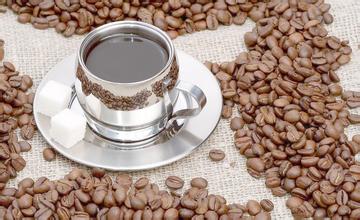A brief introduction to the latest planting situation of high-quality high-quality coffee beans in Alishan

Alishan Mazu Taiwan coffee is most suitable for cooking in siphon coffee pots and is very suitable for individual consumption. No sugar, no cream is also very smooth. In addition, fancy coffee can also be made, but it is recommended that the amount of coffee is slightly low at this time, and you can taste its sweet, pure and thick taste. And roasted coffee beans, it is easy to come into contact with the air to make the smell worse, at this time the ideal coat packaging is very important. The Alishan Mazu Taiwan coffee raw beans are packed with aluminum foil with an one-way breathable valve, which can discharge the carbon dioxide produced during the ripening process of the coffee beans, and the air outside the bag cannot enter. The opaque aluminum foil bag on the package can also prevent moisture from entering, so that fresh coffee beans can keep breathing, but will not affect the quality and flavor of coffee beans because of exposure to air and moisture.
Alishan Mafeel coffee belongs to alpine coffee and belongs to the high-quality boutique coffee in Taiwan. It ranks first in Asia and eighth in the world. Coffee trees are mainly planted in southern Taiwan, such as Alishan in Chiayi County, Taiwan. because of its high altitude, Alishan is not only suitable for growing tea, but also more suitable for growing coffee. It belongs to the boutique coffee in coffee.
Mafeel is a language taken from the Zou people of the Alpine nationality in Alishan, which means "delicious". Alishan is the area where coffee is grown, while the coffee is grown by the Zou people themselves, and it is also named Mafeel, and the coffee grown belongs to Taiwan coffee. Due to the low production of Mazu coffee in Alishan, Taiwan coffee is scarce.
Alishan Mafeel is planted in the Alishan Mountains, and the Alishan Mountains are uniquely located in the global coffee belt. Because of the high altitude and the temperature difference of more than 10 degrees between day and night, the coffee beans produced are of the best quality, with plump fruit grains, thick pulp, sweet and mellow taste, sweet taste, no astringency, no bitterness and no acidity. It perfectly presents the delicious coffee with the best quality and the most unique flavor. "Zhenggang" native flavor of "Taiwan Alishan Maha Coffee".
Alishan coffee is the most special and superior coffee in Taiwan, and its output is relatively small, and it is precious because it is rare. Alishan, located 75 kilometers east of Chiayi City, Taiwan, is located above 2000 meters above sea level, adjacent to the Yushan Mountains and Yushan National Park in the east, surrounded by high mountains, with a cool climate, with an average temperature of 10.6 degrees Celsius in summer and 14.3 degrees Celsius in summer. the average temperature in winter is 6.4 degrees Celsius. The taste is not bitter and astringent, and the flavor is mellow and rich. Alishan's unique climate and altitude conditions give birth to high-quality mountain tea, orchids and what the Japanese call the best horseradish (Washami). The number one coffee in Taiwan is not in Gukeng or Dongshan, but in Leye Village in Alishan.
Important Notice :
前街咖啡 FrontStreet Coffee has moved to new addredd:
FrontStreet Coffee Address: 315,Donghua East Road,GuangZhou
Tel:020 38364473
- Prev

A brief introduction to the latest planting situation and Market Development of Taiwan's Fine Coffee
The output of coffee beans in Taiwan is small, but through the careful planting of farmers, high-quality coffee beans can be harvested. Coffee trees, including Alishan, Nantou, Yunlin, and other places have very unique coffee. Alishan coffee is planted by young people of the Alishan Zou people who return to their hometown. The annual output has reached 20 tons, supplying instant coffee and filter coffee. Taiwan is famous for its coffee.
- Next

A brief introduction to the cultivation of historical origin varieties of Taiwan boutique coffee beans in Alishan
Taiwan's coffee is very famous. The history of Taiwan coffee can be traced back to 1624. In the early days, the Dutch introduced coffee, but it was limited to Dutch internal drinking, so it could not be widely popularized. During the Japanese occupation in 1931, at that time, the Japanese invaders vigorously mobilized farmers to grow coffee for their own needs and for the sake of Taiwan coffee, so many farmers lost it.
Related
- Detailed explanation of Jadeite planting Land in Panamanian Jadeite Manor introduction to the grading system of Jadeite competitive bidding, Red bid, Green bid and Rose Summer
- Story of Coffee planting in Brenka region of Costa Rica Stonehenge Manor anaerobic heavy honey treatment of flavor mouth
- What's on the barrel of Blue Mountain Coffee beans?
- Can American coffee also pull flowers? How to use hot American style to pull out a good-looking pattern?
- Can you make a cold extract with coffee beans? What is the right proportion for cold-extracted coffee formula?
- Indonesian PWN Gold Mandrine Coffee Origin Features Flavor How to Chong? Mandolin coffee is American.
- A brief introduction to the flavor characteristics of Brazilian yellow bourbon coffee beans
- What is the effect of different water quality on the flavor of cold-extracted coffee? What kind of water is best for brewing coffee?
- Why do you think of Rose Summer whenever you mention Panamanian coffee?
- Introduction to the characteristics of authentic blue mountain coffee bean producing areas? What is the CIB Coffee Authority in Jamaica?

